Does your brand or business have a WordPress website that’s not getting any traffic? If you aren’t happy with your site’s publicity and performance, you should highly consider optimizing it for SEO.
53.3% of organic traffic comes from search engines; SEO helps you tap into that steady flow. The most successful brands have used SEO for years to boost their site’s traffic, conversions, and experiences.
In this blog, you will learn ten best practices to optimize your WordPress website for SEO to improve your search visibility.
What Is SEO and How Does it Work?
SEO (search engine optimization) is a marketing strategy that involves structuring your site and content to let search engines like Google favor it more in rankings. Normally, you’ll target certain keywords that people use when searching and try to rank higher on search results for those keywords.
Let’s say you provide a social work degree online on your WordPress site. Search engine optimization involves targeting keywords related to that theme or topic. Some good keywords might include:
- Social work degree lessons
- How to become a social worker
- Where to study social work degree
- Social work degree costs
You can then create pages and posts on your site targeting those keywords. When you optimize your site to rank for those keywords, you’ll rank higher on search results. Higher search results tend to get more clicks and, thus, more organic traffic and conversions.
Why Should You Optimize Your WordPress Website for SEO?
There’s something you should know about SEO— it’s a lot of hard work. But like anything that comes through effort and commitment, it’s a strategy that can give you all sorts of rewards. Here are some reasons why you should emphasize WordPress SEO optimization for your website.
- Increased Organic Traffic — Your goal with SEO is to improve your site’s rankings on search engines like Google. Higher rankings for relevant keywords mean more organic (non-paid) traffic to your site. Some might argue that paid traffic is better, but having organic traffic to your website is also advantageous.
That’s because organic traffic feels more authentic and natural than paid traffic on most occasions. Users actively search for topics or products related to your content that inform or educate them.
You can use SEO to target those informational keywords that provide value to clients and convert them to leads or customers.
- Cost-Effective Marketing — Unlike paid advertising, where you pay for each click or impression, organic SEO traffic is free. Once you’ve invested in SEO, your website can continue attracting visitors without incurring additional costs.
Moreover, paid traffic tends to have a more volatile cost. You’re always at the mercy of the cost-per-click. When platforms drive up advertising costs, you’ll have no choice but to spend more to get the same traffic as you did before. With SEO, the cost is more predictable and doesn’t go up and down as often.
- Builds Credibility and Trust — Websites that rank high on search engines have a common perception of being more credible and trustworthy in users’ eyes. This enhanced credibility can lead to higher click-through rates and increased user engagement.
- Enhanced User Experience — SEO is not just about keywords and backlinks. It also involves improving the overall user experience, including site speed, mobile optimization, and site structure.
When you have a well-optimized website, it will provide users with a better browsing experience. This will ultimately lead to longer site visits and more conversions.
- Long-Term Strategy — SEO results are not always immediate. Sometimes, it takes a few weeks to a few months to see your website climb up search results of your targetted keywords, especially if you’re going for competitive keywords.
But SEO’s benefits are long-lasting. With consistent effort, your website can maintain high rankings and attract organic traffic for years.
- Keeps You Competitive — Your competitors are likely investing in SEO already, so you should too. The good news is there should be many other long-tail keywords that not many of your competitors have tapped yet.
Don’t sleep on SEO. If you neglect this aspect, you might fall behind and lose potential customers to more optimized websites.
Is WordPress Good for SEO?
Over 43% of all websites on the internet use WordPress, and for good reason. It’s easy to use and highly flexible. But is WordPress good for SEO?


Yes, WordPress is ideal to optimize your website for SEO. For one, you can access a wide variety of SEO tools to improve your SEO profile, such as plugins, themes, and built-in WordPress features that make your site more likely to rank for your desired keywords.
Moreover, you can easily publish quality content that Google can crawl and index. You can post blogs, landing pages, or interactive tools that will appear on search results.
11 Tips to Optimize Your WordPress Website for SEO
Now that you know why SEO is important, you might ask, “How can I search engine optimize my WordPress website?” Here are ten tips to help you get started.
1. Use Quality Hosting
A quality hosting provider ensures that your website loads quickly and remains accessible at all times. Slow-loading websites can negatively impact your SEO rankings.


When selecting a hosting provider, look for one with good uptime, fast server speed, and excellent customer service. Consider managed WordPress hosting for optimal performance.
Cloudways is a cracking managed hosting service provider that you can consider to host your WordPress website. They ensure excellent uptime, quick server speed, and top-notch customer service.
2. Choose an SEO-Friendly WordPress Theme
Not all WordPress themes are created equal. An SEO-friendly theme is designed with clean code and follows the best web design practices.
This ensures faster loading times and better compatibility with SEO plugins. Before choosing a theme, review its demo, check user reviews, and see if it’s optimized for SEO.
For example, if you want to build a WooCommere website, consider Bajaar as it comes with an elegant and trendy design alongside useful features, letting you stand out from your competitors.
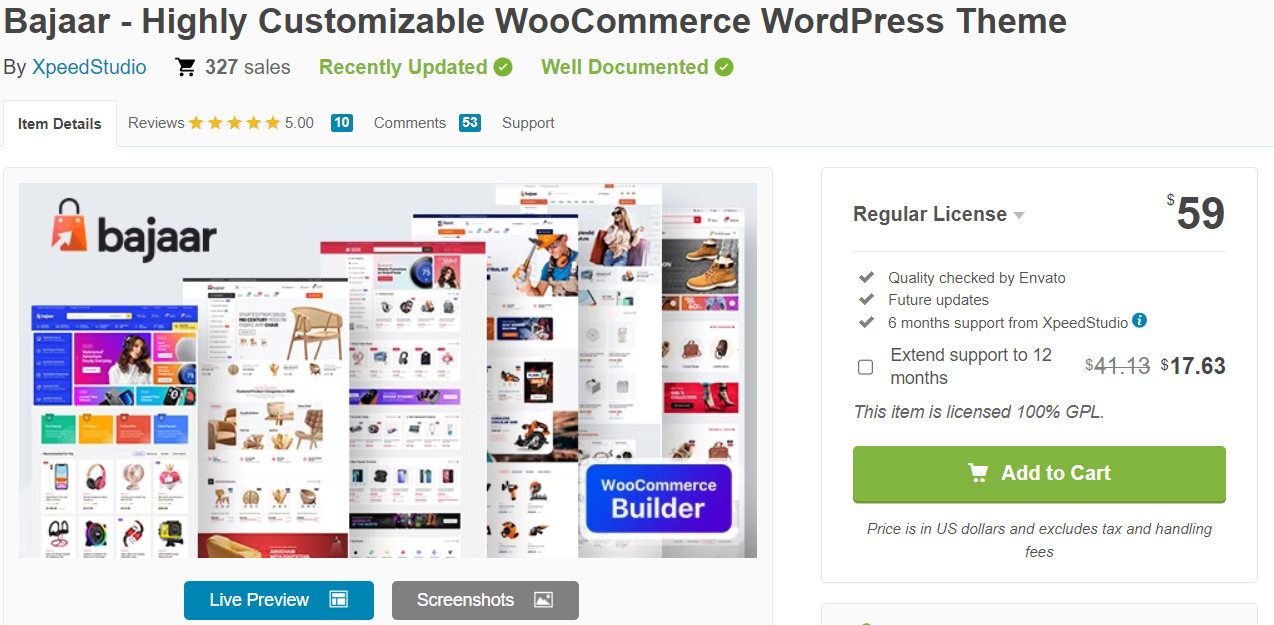

3. Install and Configure a WordPress SEO Plugin
Plugins can greatly enhance your site’s SEO. Install one of these plugins and configure it according to best practices. They can help with meta tags and sitemaps and provide insights into your content’s SEO quality.
For instance, Wpmet WP Social lets you quickly share your posts on various platforms. Another one you can consider is ElementsKit, an Elementor addon that lets you extend the functionalities of the Elementor page builder.
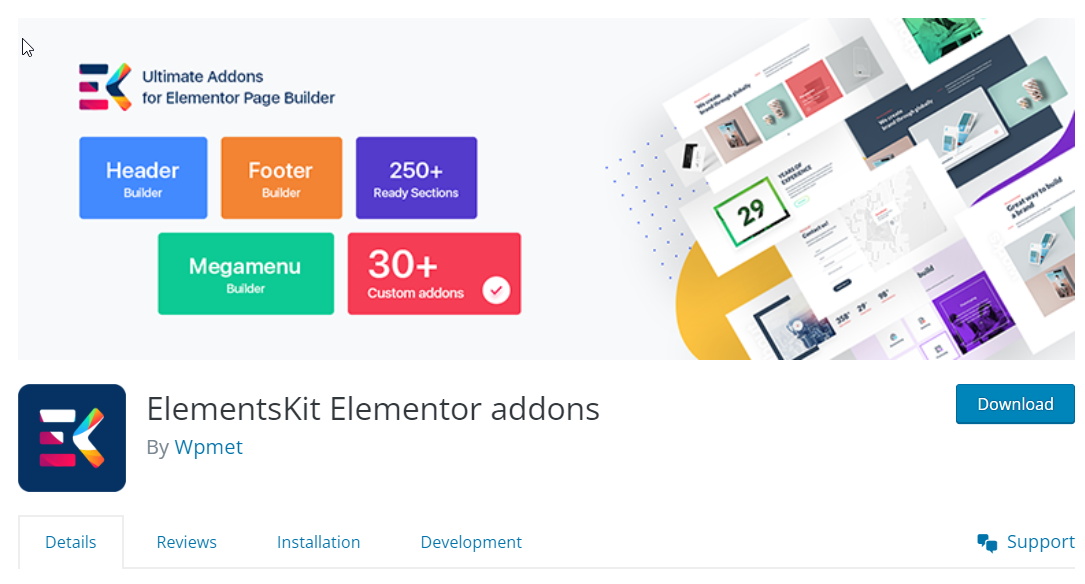

4. Perform On-page Optimization
On-page optimization focuses on improving your website’s content and structure so that search engines better understand your website. Pay close attention to content uniqueness and readability, as both are taken into consideration when Google evaluates the website for ranking. A paraphraser is a quick solution to fix issues related to originality and clarity of the content.
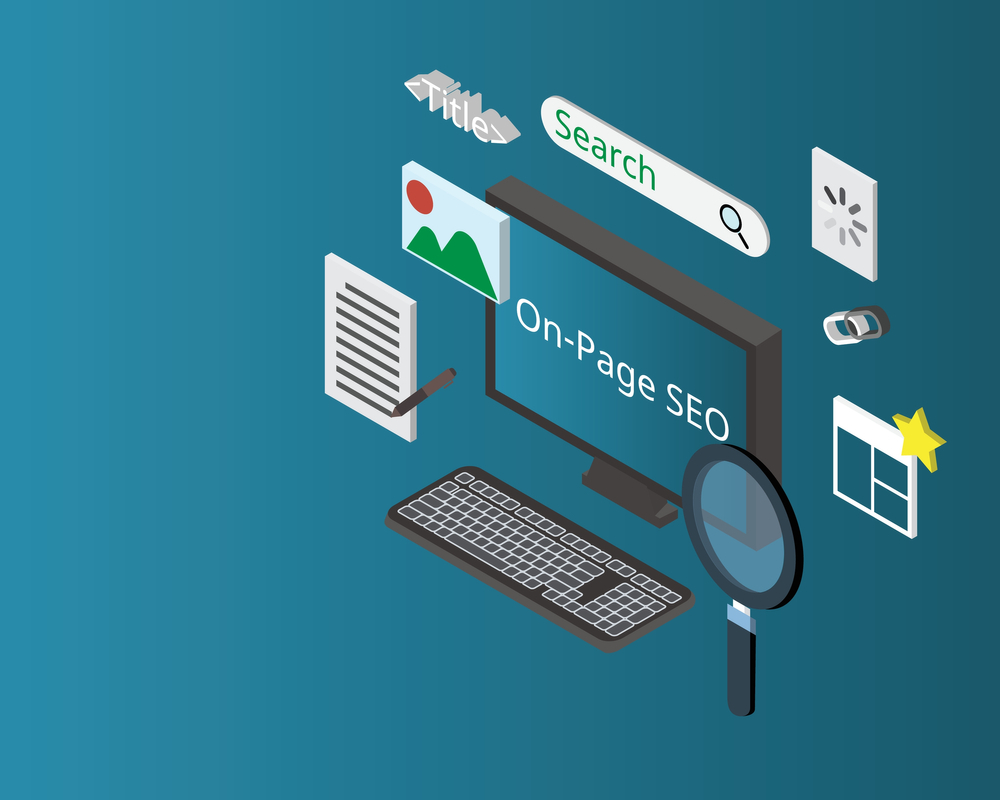

Additionally, on-page SEO optimization also involves optimizing your content for certain keywords (without sacrificing readability), adding title tags, image alt tags, internal links, etc., and making your content as helpful and valuable as possible.
5. Make Sure Your Website Is Indexable
When learning how to index your WordPress page, the starting point will always be to ensure that search engines can index your website. Ensure the “Discourage search engines from indexing this site” option under WordPress settings is unchecked.
Regularly check your website’s robots.txt file to ensure it does not block indexing for important pages.
6. Manually Approve Comments
Spammy comments can harm your website’s reputation and SEO. To prevent this, go to Settings > Discussion and check the box “Comment must be manually approved.” This gives you control over which comments appear on your site.
7. Enable “Last Updated” Date
Showing the “Last Updated” date can signal search engines that your content is fresh and up-to-date. You may need to tweak your theme’s code or use a plugin to enable this. Fresh content can improve your website’s relevancy and SEO ranking.
Your website’s menu is crucial for the user experience. Ensure it’s organized logically, with main topics and subtopics grouped. A clear and concise menu helps users find what they’re looking for and can reduce bounce rates, positively impacting SEO.
9. Switch to SEO-Friendly Permalinks
WordPress default permalinks aren’t SEO-friendly, so you’ll have to configure that too. Navigate to Settings > Permalinks and choose a structure like “Post name” to ensure your URLs are readable and contain relevant keywords, which can improve your SEO.
10. Plan Out Your Site’s Architecture
A well-organized site helps users and search engines navigate your content. Plan your site structure with main categories, subcategories, and individual posts. This hierarchical structure can improve the user experience and SEO.


11. Submit Your Sitemap to Google Search Console
A sitemap lists all the pages on your website, helping search engines index them. After creating a sitemap (often done with an SEO plugin), submit it to Google Search Console. This informs Google about your website’s structure and can speed up indexing.
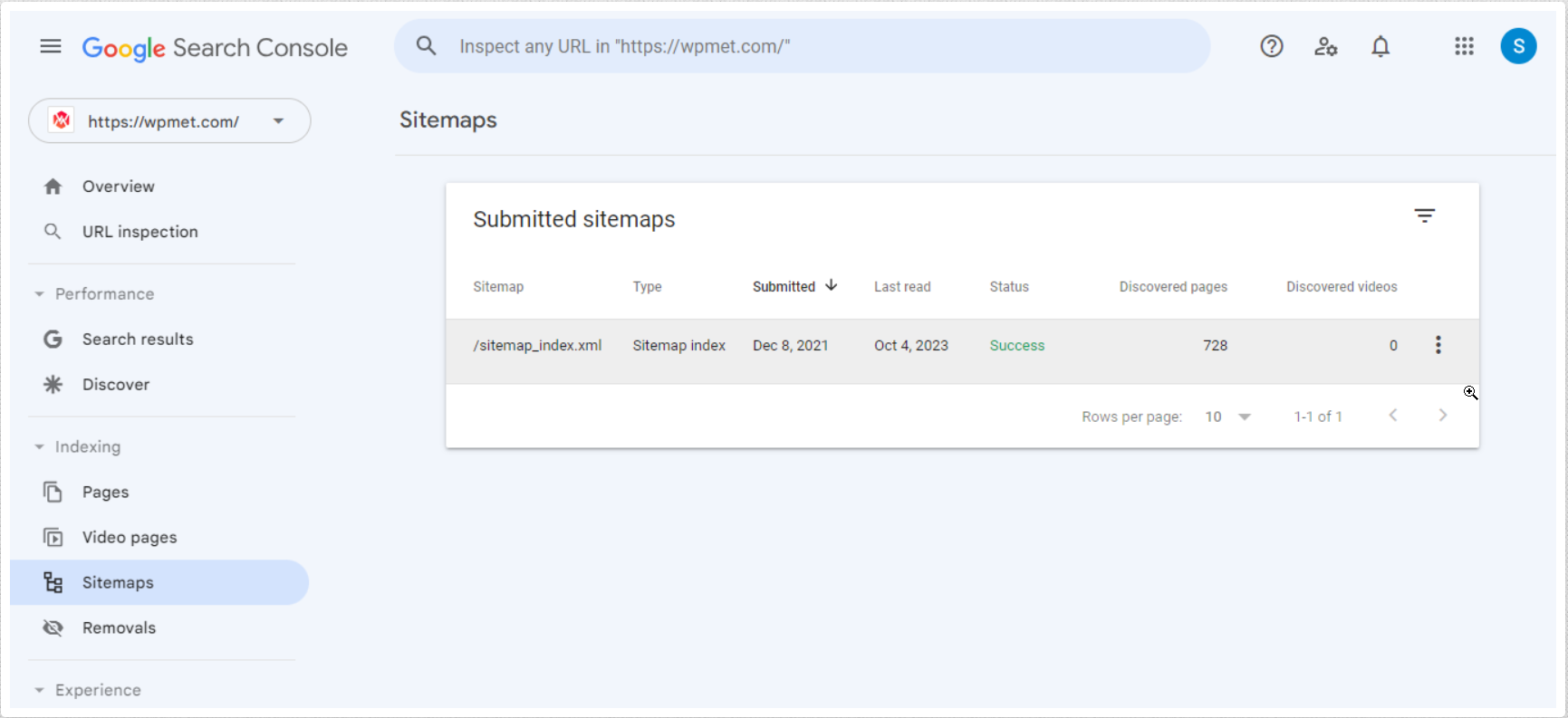

Boost Your WordPress Website with SEO
You probably spent a lot of money to build a beautiful WordPress website. Don’t let that investment go to waste by neglecting organic growth strategies.
SEO can help ensure your website ranks in search results and gets the traffic it deserves. This will help you drive business results to boost your company’s growth.
Don’t forget to publish SEO-friendly content on your WordPress website to fast-track ranking your website on the SERP. In case you are thinking of generating bulk SEO-focused content for your WordPress website, GetGenie can be a perfect choice.


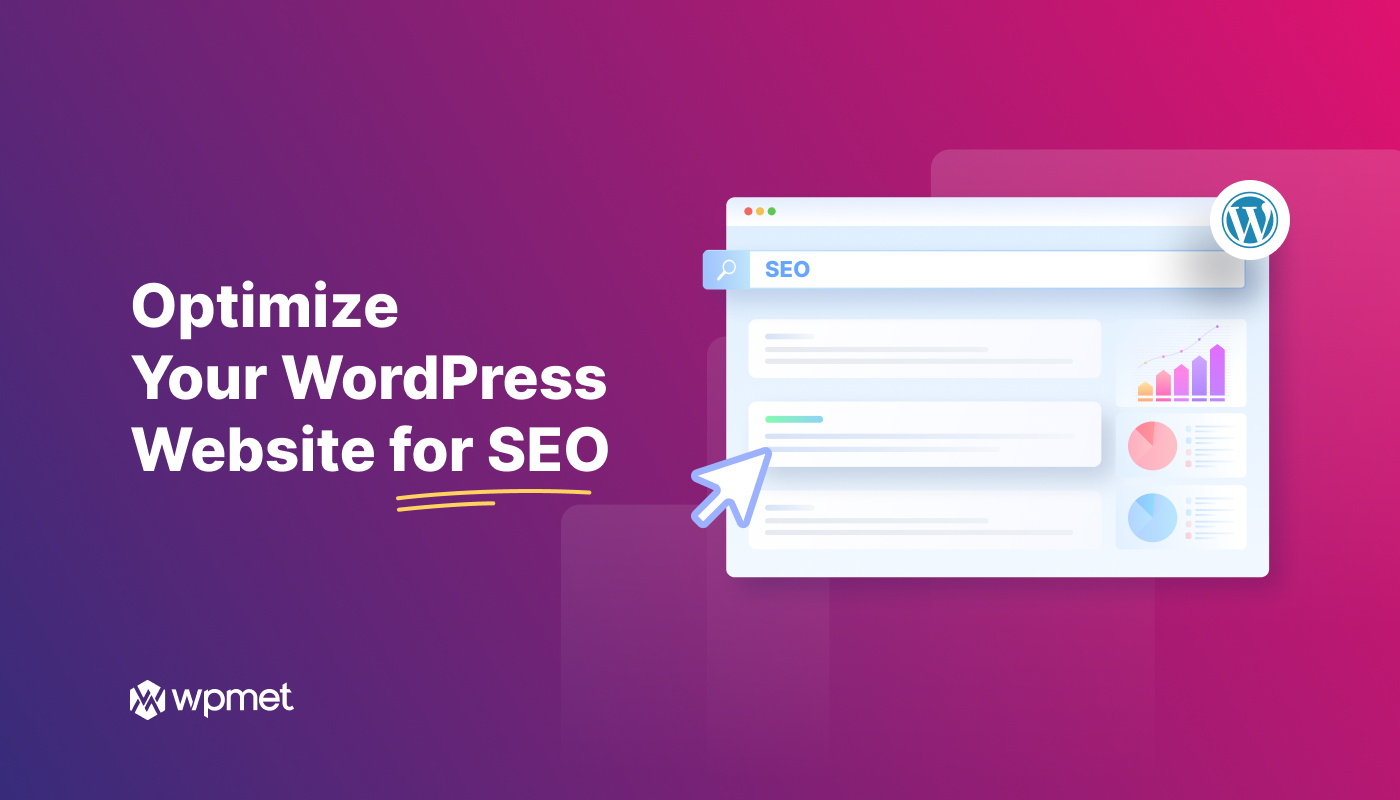
Leave a Reply